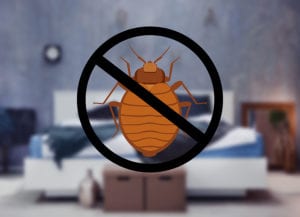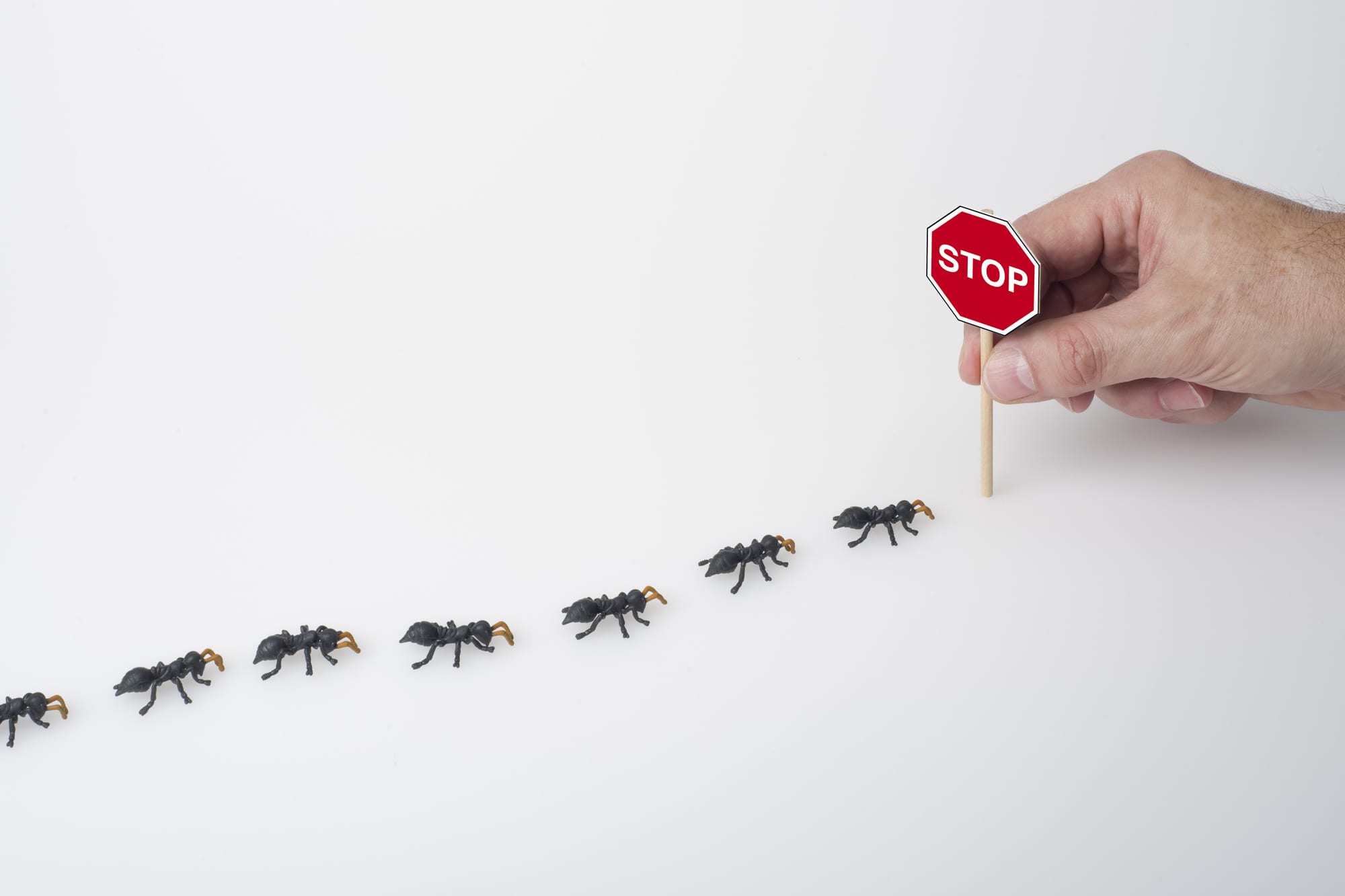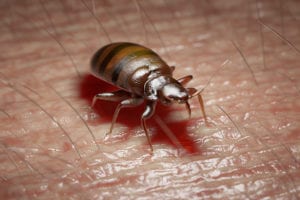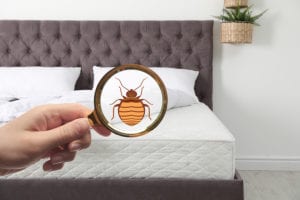How to Get Rid of Bed Bugs
Bed bugs aren’t only annoying to deal with. Having them is bad for your health. In this guide we explain how to get rid of bed bugs fast.
If you’re here, it most likely means you have bed bugs, and you want them gone now. So let’s just cut to the chase. How do you get rid of bed bugs now?
We’re going to tell you everything you need to know to get rid of the bed bugs, but first, we’ll look at how you may have gotten these pests in the first place.
We’ll also go over how to identify them, the unpleasant impacts of an infestation, and several at-home and professional treatment options. Finally, we’ll look at preventative measures so that once they’re gone, they never come back. This complete guide will help when dealing with these unwanted intruders. We’ll go over how to get rid of bed bugs naturally, when to get professional help, and how to keep them gone forever.
What Are Bed Bugs?
Bed bugs are tiny insects that feed on human blood at night. Terrifying, right? Well, they can also cause some serious health issues, like rashes and allergic reactions.
To put it simply: you don’t want these things in your home.

They’re smart little insects that know where to hide to avoid getting exterminated but don’t worry; you can get rid of them. But how did they get into your home in the first place? Let’s look at the possibilities so that you can avoid getting them ever again.
How Do You Get Bed Bugs?
Since bed bugs are so tiny and hard to see, you usually don’t notice you have them until you start seeing bites on your body. But there are a couple of ways that they come into your home and stay way past their welcome.
- You traveled somewhere with bed bugs and brought them home with you
- There are many cluttered spaces in your home (the ideal environment for them to hide and procreate)
- You stay in hotels often
- You buy secondhand clothes and furniture

The most common way to get them is from traveling, encountering an infestation, and then bringing them home. Since bed bugs are tiny and hard to see, you may have no idea that they’re hiding out in your suitcase.
What Are the Signs of Bed Bugs?
You may have bed bugs if you experience one or more of the following:
- Red, itchy bites on your arms and shoulders (or any skin that’s usually exposed while you sleep)
- A strong, wet towel-like odor in your room
- Bloodstains and exoskeletons around your bed
- Small dark spots: bug excrement that resembles a marker stain
- Pale yellow skins that bugs shed as they grow
- Eggs and eggshells
- Live bugs
Bed Bug Behaviors
Let’s understand how bed bugs act, so it’s easier to identify an infestation before it’s too advanced.

Bed bugs feed mostly on humans. They’re active at night, which is why you might wake up with bites. They must eat every 14 days to grow into their next life stage.
The average lifecycle is between 6-12 months. In that time, females can lay between 200-500 eggs (1-3 per day).
Bed bugs can survive anywhere that humans can survive; however, they cannot survive in temperatures higher than 113 Fahrenheit.

How to Find Bed Bugs
Do you suspect you have bed bugs but haven’t seen them yet? Their bodies are so small that it takes a thorough investigation to identify them.
Bed bugs typically hide in mattresses along the seams and mattress tag, in the crevices of the bed frame and headboard, and in between the mattress and box spring.
Other places they can hide:
- Inside cracks in the walls
- Under loose wallpaper
- In couch and chair cushions
- Inside holes in furniture
- In the folds of curtains
- Behind a wall hanging
- In open electrical outlets
- Inside appliances
To find the bed bugs, grab a flashlight and a magnifying glass and start by searching around your bed. You’re looking for small reddish-brown bugs with a flat oval-shaped body.
Strip the mattress and inspect the box spring as well. From there, look around the rest of the room and in your closet.

If you have piles of clothes hanging around, that could be a bed bug hotspot. Again, look for their brown, oval exoskeletons, as they shed them every once in a while.
Now that you’ve identified the problem let’s get rid of these unwelcome guests.
How to Get Rid of Bed Bugs Fast
While an exterminator may be necessary if you’re dealing with a progressed infestation, there are some things you can try at home first to save yourself from paying for an expensive treatment, which could be anywhere from $300-$5000.
Remove Clutter
First, clean and reorganize any cluttered area where the bed bugs could be congregating. Don’t limit this to just your bedroom, as bed bugs can spread to other areas of your house.
Wash Clothes and Sheets
Wash any laundry that you think has come into contact with the bed bugs on the highest heat setting possible. If it can’t be washed, put it in the dryer on high heat. If it can’t be washed or dried, seal it in a plastic bag for a few months and keep it away from your clean clothes and linens until the bugs have all died.
Be sure to segregate your clean laundry from any remaining dirty laundry so that they can’t transfer back to your clean things.
Vacuum Any Potential Infested Areas
Run your vacuum over all possible hiding places, including electronics, beds, and dressers. When you’re done, throw away the contents of the vacuum and seal the trash bag, then thoroughly clean the vacuum.
Clean Your Furniture
Wipe down all furniture to be sure the infestation hasn’t spread. You can use diluted rubbing alcohol, which kills bed bugs on contact. If any furniture can’t be cleaned, it’s better to throw it out, so you aren’t dealing with more bed bugs later on.
Cover Your Mattress
You can purchase an encasement for your mattress that traps any living bugs inside, cause them to starve, and keeps any other bed bugs out. It’s recommended that you purchase one for your box spring, as well.
Diffuse Essential Oils
A recent study found that oregano oil may be effective at killing bed bugs when diffused into the air. This home remedy can work because the oil suffocated the bugs.
However, a controlled study is extremely different from a complete home infestation, so you may need to try other methods as well. Combining oregano oil with your rubbing alcohol treatment is an easy and effective option.
Sprinkle Diatomaceous Earth
Diatomaceous Earth is a powdery chemical that can dehydrate the bugs when sprinkled around their hot spots. They’ll even spread it to each other, making your job easier. It’s safe for humans and indoor use.
Repair Holes in the Wall
Make sure there aren’t any cracks in your plaster or other holes around your home where the bed bugs can hide out. Seal off any holes and fill cracks around baseboards to reduce the likelihood of bed bugs lingering undetected.
Use Stronger Chemicals
If all of your cleaning and home remedies have not totally wiped out the bed bugs in your home, it’s perfectly fine to turn to the stronger stuff. The Environmental Working Group has identified over 300 chemicals that are safe for humans and work to kill bed bugs.
Here are a few options:
- Pyrethrins and Pyrethroids
- Desiccants (diatomaceous earth and boric acid)
- Biochemicals (like cold-pressed neem oil)
- Pyrroles
- Neonicotinoids
- Insect growth regulators
When to Bring in the Professionals
All of these treatments can be highly effective when used together; however, you may need to repeat them multiple times before you kick out your last bed bug.
If you’ve been repeating these methods for several months and are still experiencing irritations while you sleep, it may be time to call in a professional exterminator.
Exterminators can be expensive, but they have access to powerful chemicals and treatments that average consumers cannot purchase. The cost may be a pain, but if you’re at the end of your rope, it will be worth it to get rid of the infestation once and for all.
Average Exterminator Costs
What you will have to pay will depend on the size of your house and how many rooms need to be treated. It may also take more than one exterminator visit to fully take care of the problem.
According to Home Advisor, the average cost of an exterminator is $200-$400 per room. A small apartment could cost between $300-$900 with a three to four-bedroom house ranging from $800-$2500.
Before hiring an exterminator, make sure you’re clear on how they charge. Some charge by square foot while others charge by the room. Some may offer package deals no matter how many visits are required, while others charge per visit.
Professional Treatments
There are a few ways that professional exterminators can treat a bed bug infestation. Each treatment has a different price range, so you must go over all of your options with your chosen professional.
Fumigation
If your foundation is compromised, fumigation is an effective way to treat the whole house. However, you’ll have to be out of the house for several days while the treatment is taking place.
Steam
Steam is a highly effective chemical-free treatment. The steam kills both eggs and adults and can safely be used on your mattresses and furniture.
Pesticides
These are special toxic chemicals that the exterminator applies to your space. You may have to stay out of the treated rooms for a few hours after application.
Canine Inspections
Trained dogs are extremely good at identifying infestations. As a final effort, they can be brought in to find any hiding spots that other treatments have missed.
How to Get Rid of Bed Bugs Permanently
Now that the bed bugs are finally gone, you’re going to want to do everything in your power to prevent them from ever coming back. Continue the above home treatments for a few weeks to make sure no missed eggs remain.
Additionally, try these preventative methods and routines to keep them gone forever.
Inspect any secondhand purchases. If you buy any used furniture, thoroughly inspect and clean it before bringing it into your home. Wash any secondhand clothes immediately before wearing them.
Inspect your hotel room. Anytime you travel, make sure you investigate your space, especially around the bed, so you don’t bring any bed bugs home with you.
After traveling, launder all of the clothes and linens you brought home from your trip.
Purchase a mattress cover (mentioned above) and leave it on your mattress and box spring for at least a year, the length of time that bed bugs can survive before starving. Zip it up all the way to keep other bed bugs out.
Routinely inspect and clean your furniture, check for holes in the walls, and glue down loose pieces of wallpaper.
Maintain a clutter-free home, free from piles of clothes and paper where bed bugs could hide, and be sure to vacuum frequently.
If you use a shared laundry facility, keep your clothes separate from anyone else’s. Transport them in a plastic bag, remove them immediately from the dryer, and fold them at home.
Face Bed Bugs Head-On
Now that you’re armed with all of this information on how to get rid of bed bugs fast, you should be able to face your intruders head-on.
Whether you go the home remedy route or hire professionals right away, be patient with the process. Bed bugs are extremely good hiders and can survive hard conditions. However, even the toughest bugs can’t withstand all of these treatments, so try as many as it takes until you have a bed bug free home.
Stay diligent about cleaning and washing anything that may have come in contact with the bugs, and be on guard for any unwelcome passengers when you travel.
We want to help you rid your home of bed bugs. Check out our site for more resources, cost estimates on removal services, and more.
With these treatments and preventative methods, bed bugs will be no match for you or your home.

Leave a Reply